To accompany your Come Follow Me study for the week of January 8-14
In addition to reading 1 Nephi 1-5 and the related material from the Come Follow Me manual, you may want to:
Read the relevant portions from the Book of Mormon Institute Student Manual at
Study any or all of the wonderful resources of Book of Mormon Central at Come Follow Me 2024: 1 Nephi 1–5 | Book of Mormon Central
Consult the resources of Book of Mormon Central at Come Follow Me 2024: 1 Nephi 1–5 | Book of Mormon Central
View any or all of the following videos:
If you would like a Kahoot game related to this material which you could use for personal study or use with your family or your class, click here: https://create.kahoot.it/share/1-nephi-1-7/58d83861-93c7-4ad6-8cb6-0c4feec3e5ca. (To use it with a group, after clicking on this link, you will need to log into Kahoot, creating a free account if you have not done so previously, then click on the blue “Start” button.)
Points to Ponder in 1 Nephi 1-5
1. Identify at least four errors (stated or implied) in the following paragraph and tell why it may be important to understand that they are errors, even though some careless readers believe them:
During the reign of king Zedekiah, approximately 600 B.C., Lehi, possibly a well‑to‑do merchant living in or near Jerusalem, was simply going about his business when the Lord appeared to him, much as he did to Alma and Paul, commanding him to take his wife and children, Laman, Lemuel, Nephi, and Sam, and leave Jerusalem, promising him that they would be led to a land of promise, choice above all other lands, across the many waters. Obedient to the Lord’s command, Lehi’s family left their gold, silver, and precious things and travelled into the wilderness. After an arduous journey of three days, they arrived at the Red Sea.

2. In a very long sentence in 1:1, Nephi finally tells us what induced him to write down his personal history. What implications do his stated reasons have for our own personal histories?

3. What is the difference between a personal or family history of a righteous person and scripture as we generally think of it? Was the Book of Mormon scripture to start with, or did it later acquire that status? Could your own journal someday be looked upon as scripture?

4. How many parallels can you see between Lehi’s first two visions and Joseph Smith’s first vision? What significance do you see in them?
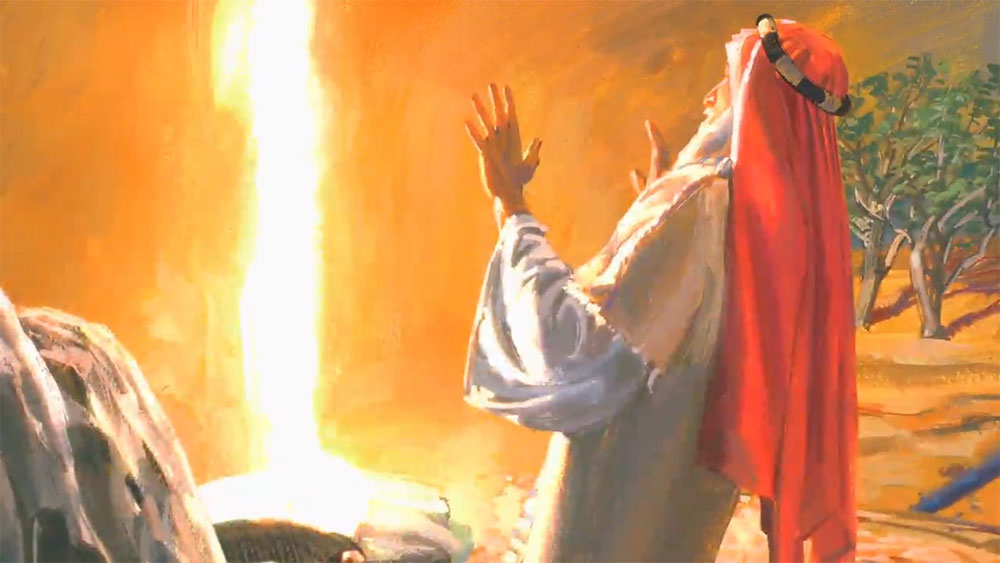
5. Why do you think Lehi was so happy (1:15) after hearing that Jerusalem was going to be destroyed and many of its inhabitants killed or led away captive?
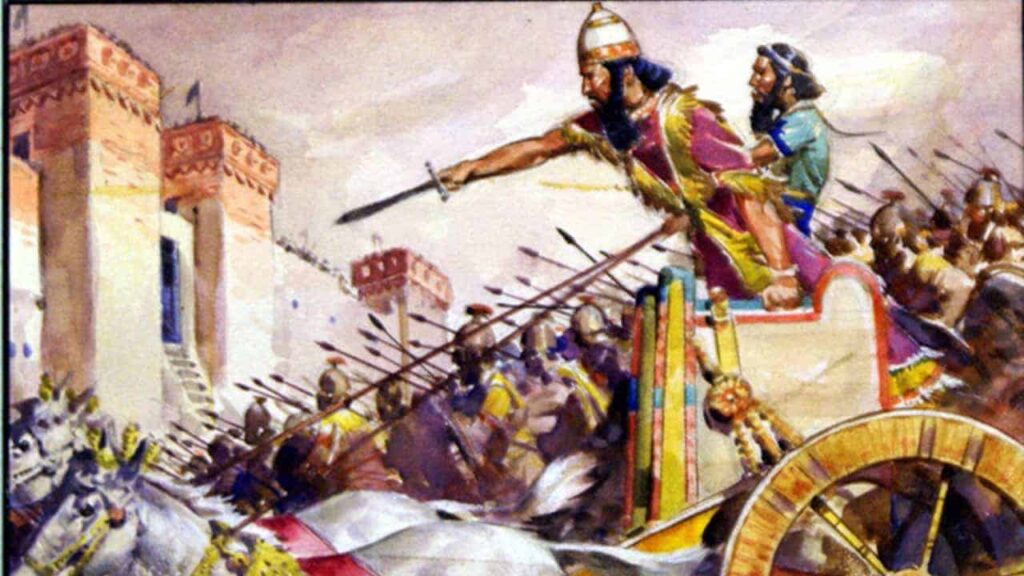
6. If when you were a teenager or young adult your father had suddenly announced that he had dreamed that the Lord commanded him to take your family on a backpacking trip of indefinite duration, leaving all your comforts and electronic devices behind, to escape the imminent destruction of your city by earthquake, would you have gone with him? How would that have been any different from what Lehi asked of his family? Why do we praise Nephi’s response and condemn Laman’s and Lemuel’s, which on the surface would seem the more logical reaction?
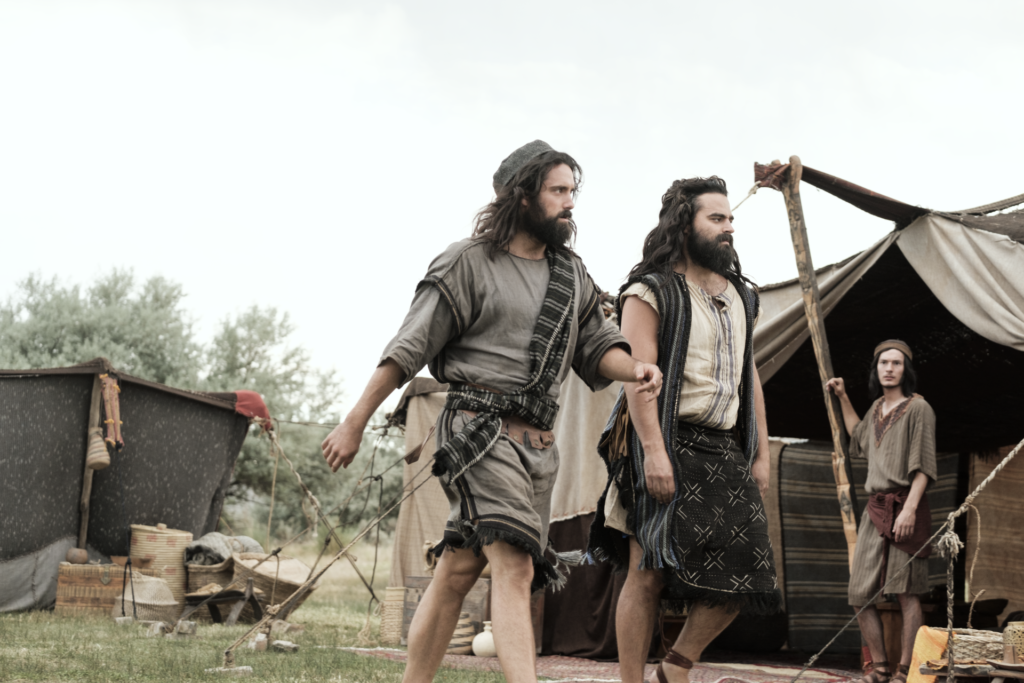
7. It is relatively unlikely that any of us will actually be asked to leave our home and possessions behind and go permanently into the wilderness. What is a more likely application of this part of the Nephi story to our own lives?
8. Which verse in 1 Nephi 1 do you think best summarizes what Nephi considers to be the main point he intends to make in his writing?
9. Who other than Nephi does 1 Ne. 2:16 remind you of? Why?
10. How old would you guess Nephi is in these chapters? (How young is “exceedingly young”?) What difference does it make?
11. Why didn’t Lehi bring the scriptures with him the first time, rather than have to send his sons back on a 400-mile round trip to get them later?
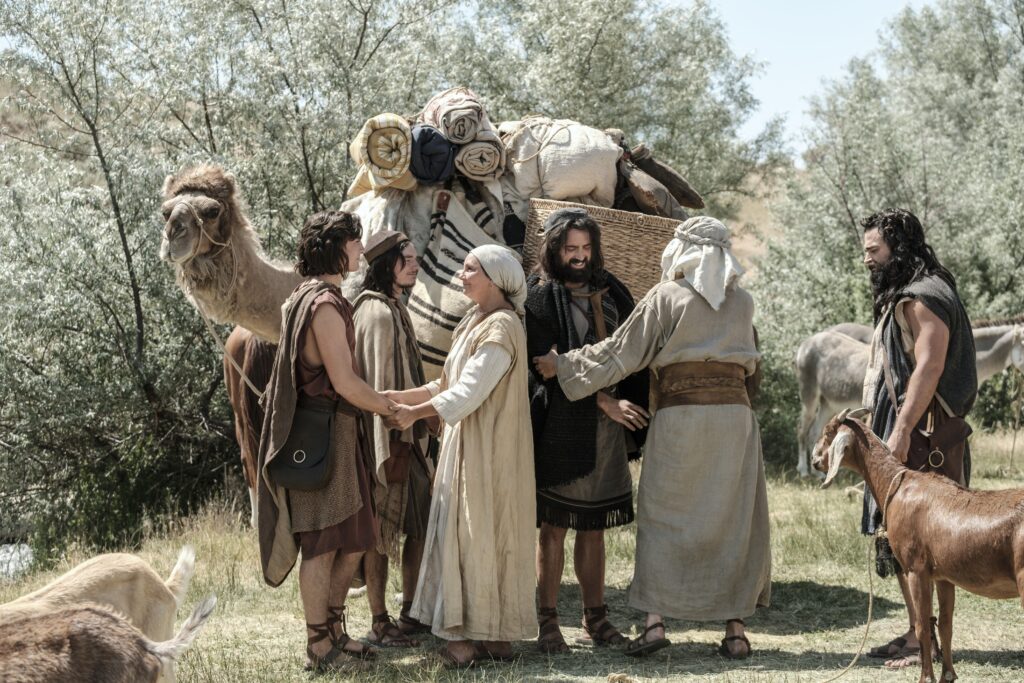
12. What implications does 1 Ne. 3:7 have for
- Missionary service?
- Accepting calls to serve in the ward?
- Payment of tithing?
- Family size?
13. If 1 Ne. 3:7 is universally true, why weren’t the early Latter‑day Saints enabled to build a New Jerusalem as they were commanded to?
14. Why did the Lord make Nephi kill Laban rather than have Laban die from a stroke? What parallels do you see between this incident and other events in Latter-day Saint history?
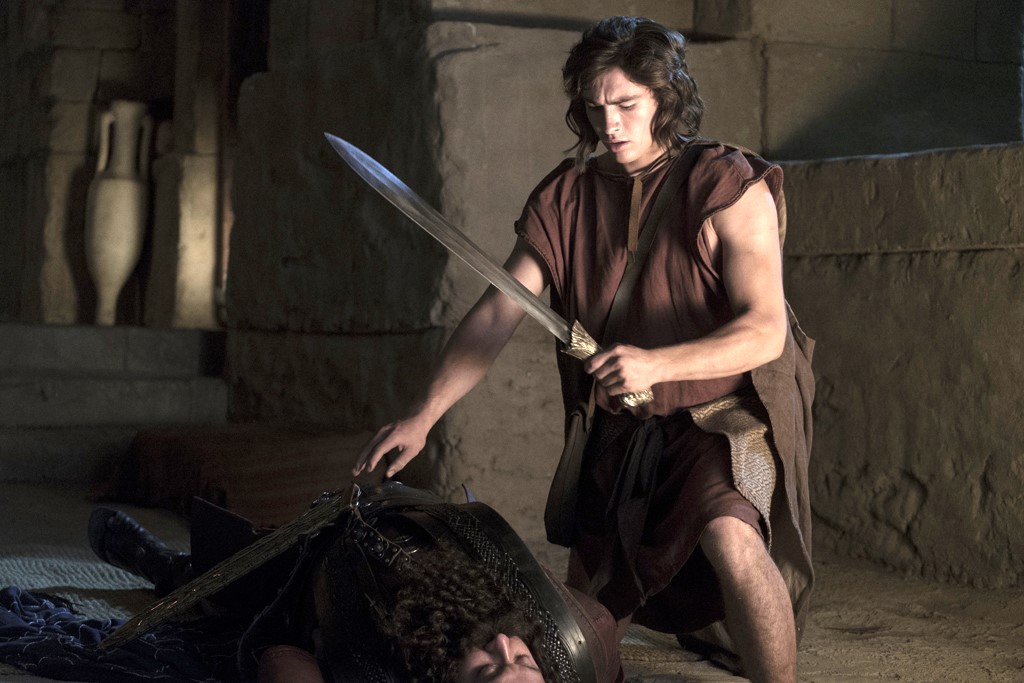
15. How can we respond to the critics who say that the Book of Mormon can’t be true, because it speaks of a river of water flowing westward into the Red Sea in what would now be Saudi Arabia, whereas a Saudi Arabian governmental official has stated that the country has no perennially running rivers at all?
16. What is the significance of Lehi’s saying in 1 Ne. 3:2 “I have dreamed a dream”? Isn’t that needlessly repetitious? What else would he dream? Or what significance could it have that Nephi says in 1 Nephi 3:10 that “I and my brethren did consult one with another”? Wouldn’t his English teacher have flunked him for not saying “my brethren and I”?
17. What other principles of significance are hidden away in these chapters, just waiting to be discovered?
Possible Answers to Points to Ponder in 1 Nephi 1-5
Note: Your Book of Mormon study will be more fun if you go back to the Points to Ponder section and think about each question before you look at the following suggested answers. For most of the questions there may be no single correct answer. The answers you come up with may be better than mine!
1. Identify at least four errors (stated or implied) in the following paragraph and tell why it may be important to understand that they are errors, even though some careless readers believe them:
During the reign of king Zedekiah, approximately 600 B.C., Lehi, possibly a well‑to‑do merchant living in or near Jerusalem, was simply going about his business when the Lord appeared to him, much as he did to Alma and Paul, commanding him to take his wife and children, Laman, Lemuel, Nephi, and Sam, and leave Jerusalem, promising him that they would be led to a land of promise, choice above all other lands, across the many waters. Obedient to the Lord’s command, Lehi’s family left their gold, silver, and precious things and travelled into the wilderness. After an arduous journey of three days, they arrived at the Red Sea.
Errors include:
- Lehi was not just “going about his business” but was earnestly praying, quite unlike the wayward Alma and Paul. Seldom does the Lord intervene overtly in our lives until we invite Him.
- The order of children given in the question implies that Sam was youngest, when really it was Nephi. Nephi’s leadership is even more impressive when we realize he was the “baby” of the family at the time. It can give hope to younger children in every family!
- Nothing was said initially about their being led to a land of promise. That promise was given once they had been faithful enough to leave home and go out into the wilderness without knowing their ultimate destination. Even then, nothing was said about crossing the waters. Only when they reached the seashore eight years later was that information revealed. As Ether 12:6 reminds us, “Ye receive no witness until after the trial of your faith.”
- The total journey was more like 10 days to 2 weeks in each direction to cover the 400-mile round trip distance. The “three days” referenced in the heading to 1 Nephi as well as in 1 Nephi 2:6 evidently represents the time it took them to reach the Valley of Lemuel after they first reached the tip of the Red Sea—a distance of about 75 miles. It was no small task Lehi asked of his sons to return twice to Jerusalem.
2. In a very long sentence in 1:1, Nephi finally tells us what induced him to write down his personal history. What implications do his stated reasons have for our own personal histories?
Nephi says he kept his record because despite his many afflictions he had been highly favored of the Lord and had a great knowledge of the goodness and mysteries of God. While there may be many reasons to keep a personal history, it is likely to be most useful to posterity if it focuses on the same kind of material Nephi included in his records.
3. What is the difference between a personal or family history of a righteous person and scripture as we generally think of it? Was the Book of Mormon scripture to start with, or did it later acquire that status? Could your own journal someday be looked upon as scripture?
The major difference between a personal history of a righteous person and the “scriptures” is that one has been canonized and the other has not. As D&C 68:4 indicates, the Book of Mormon was always “scripture,” but only later became part of the standard works or the “scriptures.” Yes, your personal journal theoretically could someday be considered as “scripture,” especially by your descendants, though it is unlikely ever to be canonized. According to Oliver B. Huntington, Joseph Smith “advised the elders all to keep daily journals. ‘For,’ said he, ‘your journals will be sought after as history and scripture. That is the way the New Testament came, what we have of it, though much of the matter there was written by the apostles from their memory of what had been done, because they were not prompt in keeping daily journals.'” (Quoted in Andrus, They Knew the Prophet, p. 65.)
4. How many parallels can you see between Lehi’s first two visions and Joseph Smith’s first vision? What significance do you see in them?
Both were ordinary citizens who listened to many other preachers before they were called by the Lord. Both prayed earnestly. Both apparently saw God, Christ, and angels. Both saw a brightness above that of the sun. Both were told of the corruption of their society. Both were physically overcome. Both rejoiced. Both told their townspeople of their vision but were rejected and persecuted for doing so. It may or may not be a coincidence, but the story coming where it did in the Book of Mormon may have (1) reassured Joseph Smith that he was in good company and (2) appealed to those readers who were already prepared to believe the rest of the restoration message.
5. Why do you think Lehi was so happy (1:15) after hearing that Jerusalem was going to be destroyed and many of its inhabitants killed or led away captive?
Presumably he was happy about the rest of the vision and assurance that he had found favor with God, not that so many were to be destroyed.
6. If when you were a teenager or young adult your father had suddenly announced that he had dreamed that the Lord commanded him to take your family on a backpacking trip of indefinite duration, leaving all your comforts and electronic devices behind, to escape the imminent destruction of your city by earthquake, would you have gone with him? How would that have been any different from what Lehi asked of his family? Why do we praise Nephi’s response and condemn Laman’s and Lemuel’s, which on the surface would seem the more logical reaction?
2 Nephi 33:1 assures us that when a man speaks by the power of the Holy Ghost, the Holy Ghost carries the message into the hearts of the children of men, and they can thus know that it is true. Obviously, not every dream conveys a message from the heavens. So, we might properly question a bizarre proposal of our father if he in fact was not normally inspired, whereas Nephi, being spiritually prepared, could sense that his own father’s proposal was inspired by the Lord.
7. It is relatively unlikely that any of us will actually be asked to leave our home and possessions behind and go permanently into the wilderness. What is a more likely application of this part of the Nephi story to our own lives?
We may be more likely to be tested to see if we will leave the world behind as we undertake our spiritual journey toward our own “promised land.” Sometimes the Lord’s instructions may seem as illogical as Lehi’s, but the blessings will be just as sure.
8. Which verse in 1 Nephi 1 do you think best summarizes what Nephi considers to be the main point he intends to make in his writing?
Probably 1 Nephi 1:20
9. Who other than Nephi does 1 Ne. 2:16 remind you of? Why?
Your choice. One obvious possibility is Joseph Smith, who also was young, well-built, strong, and desirous of knowing the truth for himself.
10. How old would you guess Nephi is in these chapters? (How young is “exceedingly young”?) What difference does it make?
Most likely he was between 13 and 15. If much younger, he wouldn’t have been large in stature. If much older, he wouldn’t have been considered “exceedingly young” in that society. The significance of the question may be to highlight the great potential young people of 13-15 have, if they will follow the Lord.
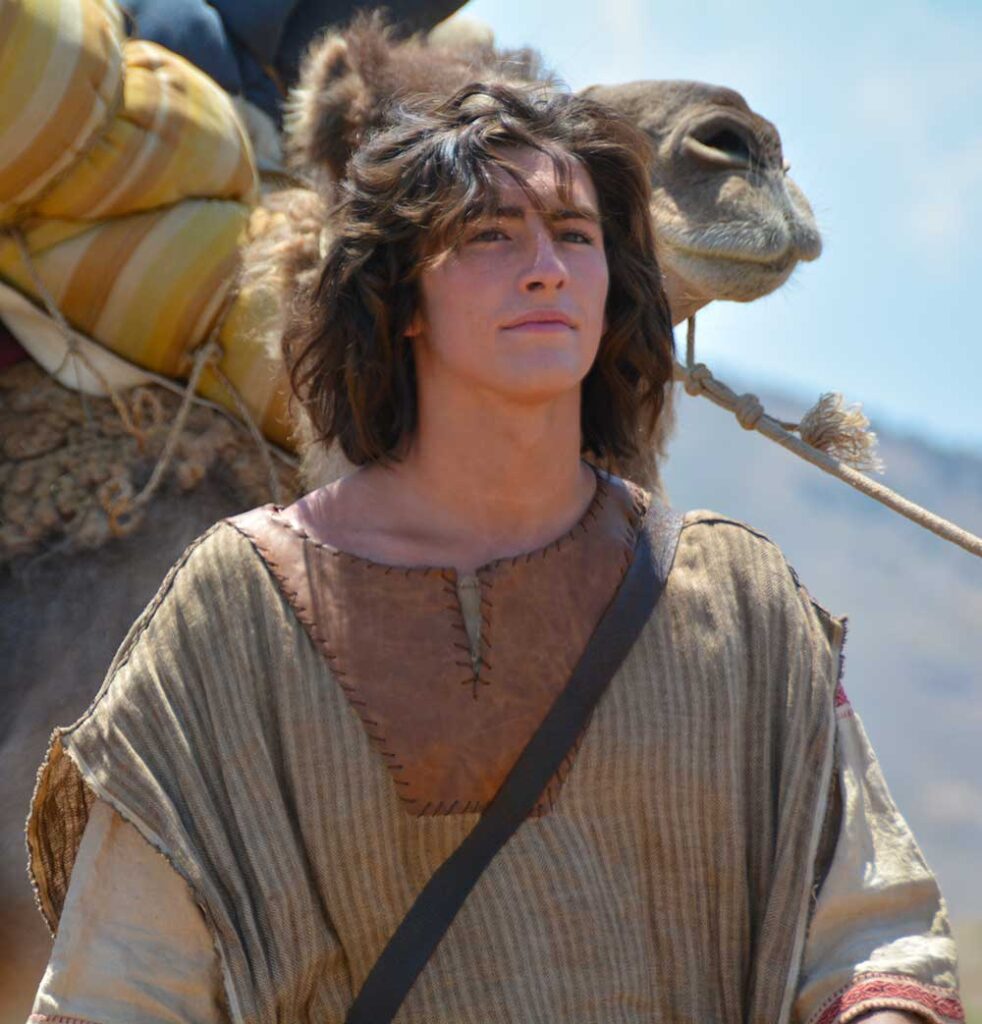
11. Why didn’t Lehi bring the scriptures with him the first time, rather than have to send his sons back on a 400-mile round trip to get them later?
When they first left, they weren’t told they weren’t coming back, so there may have seemed less reason to take something so cumbersome which, after all, belonged to someone else. As it turned out, the commandment to return for the plates provided a splendid test of the faith of the boys and dramatized the importance of the scriptures.
12. What implications does 1 Ne. 3:7 have for
- Missionary service?
You, too, can succeed as a missionary, even if you are shy and can’t learn the lessons or the language easily!
- Accepting calls to serve in the ward?
If you’ve been asked to do something by the Lord’s representative, the Lord is bound to help you succeed. This doesn’t mean you can’t tell the bishopric member of circumstances in your life that would make it more challenging for you to serve in a particular capacity at a given time.
- Payment of tithing?
The windows of heaven will open after you’ve paid your tithing and you’ll have enough resources to do all else you need to do.
- Family size?
If you have as many children as the Lord wants to send you, you’ll be able to care for them with His help.
13. If 1 Ne. 3:7 is universally true, why weren’t the early Latter‑day Saints enabled to build a New Jerusalem as they were commanded to?
See D&C 124:49. The Lord will either enable us to fulfill a commandment, or He’ll rescind the commandment. In this case, He did the latter–or at least temporarily suspended it.
14. Why did the Lord make Nephi kill Laban rather than have Laban die from a stroke? What parallels do you see between this incident and other events in Latter-day Saint history?
This way it made a much bigger impression on Nephi’s mind. He now knew that the scriptures were worth more than a man’s life, and he would be unlikely to ever forget it. Also, Nephi in this way learned that, as Joseph Smith said, “whatever God requires is right.” He learned that we must look for the current will of God on every subject, and not just content ourselves with whatever God may have said previously under other circumstances. One parallel to this might be the command to the early Latter-day Saints to practice plural marriage. In both cases people were asked to do something which under normal circumstances is wrong, but it becomes right if and when God commands it. Instructions given by Moses and by Samuel to Israelite armies to slaughter every man, woman, and child of a conquered enemy would be another example of specific instructions which are different from those given more generally.
15. How can we respond to the critics who say that the Book of Mormon can’t be true, because it speaks of a river of water flowing westward into the Red Sea in what would now be Saudi Arabia, whereas a Saudi Arabian governmental official has stated that the country has no perennially running rivers at all?
See George Potter’s and Richard Wellington’s book Lehi in the Wilderness, where they tell of discovering a small but continually running stream exactly where the Book of Mormon says it would have to be. See the photo below.
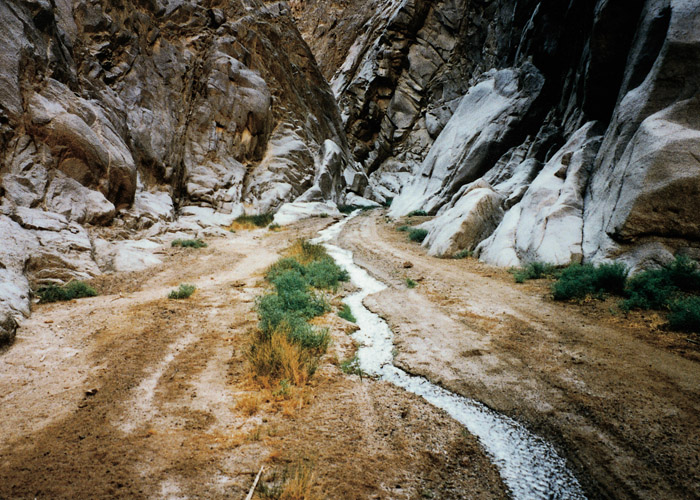
16. What is the significance of Lehi’s saying in 1 Ne. 3:2, “I have dreamed a dream”? Isn’t that needlessly repetitious? What else would he dream? Or what significance could it have that Nephi says in 1 Nephi 3:10 that “I and my brethren did consult one with another”? Wouldn’t his English teacher have flunked him for not saying “my brethren and I”?
But Nephi didn’t speak English! He spoke Hebrew. And even though he wrote in Reformed Egyptian characters, there is much evidence in the Book of Mormon of Hebrew idioms—so much so that they are one of the great internal evidences of the authenticity of the book. “Dreamed a dream” is terrible English but great Hebrew, as is saying “I and my brethren.” For additional examples, see my paper on Hebrew Idioms in the Book of Mormon at https://1drv.ms/w/s!ApUO8ho2E1yTg7JlXpK45ZKJrgTA6w?e=iMW1mp.
17. What other principles of significance are hidden away in these chapters, just waiting to be discovered?
Possibilities include:
- Righteous parents take responsibility for the education of their children. (1:1)
- Prayer with all one’s heart can bring blessings that casual prayer cannot. Great spiritual blessings require great effort on our part. (1:5)
- Scripture reading is a great way to get the Spirit. (1:12)
- Revelation can come to us in dreams (1:16; 2:1), if we are in tune to distinguish inspired dreams from the more usual kind.
- Those who know the gospel have a responsibility to share it. (1:18)
- If we have “great desires” to know the mysteries of God, the Lord can reach us. (2:16)
- God will usually show us the next step, but not necessarily the following step until we need to know. (4:6)
- It is better to remove a disruptive child from Primary or seminary than to let him destroy the Spirit for everyone. (4:13)
